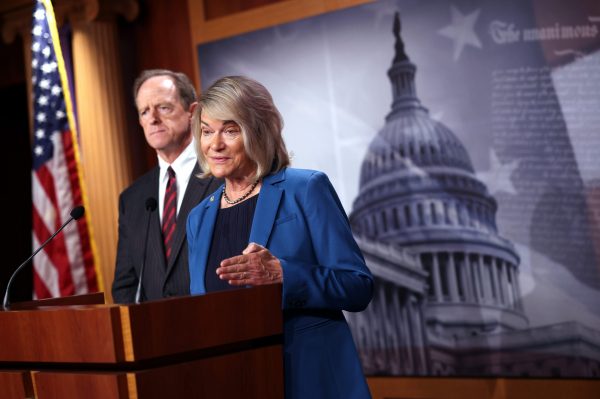Introduction
The cryptocurrency world was shaken by the news that various US authorities this week charged the founders of Tornado Cash, a controversial cryptocurrency mixer with various money laundering and sanctions violations that could have far-reaching implications for the decentralized finance sector. This article aims to dissect the implications of this case for the broader crypto community and regulatory landscape.
The Charges vs Tornado Cash: Money Laundering and Sanctions Violations
Roman Storm and Roman Semenov, the founders of crypto mixer Tornado Cash, have been indicted for conspiracy to commit money laundering, conspiracy to commit sanctions violations, and conspiracy to operate an unlicensed money transmitting business. The arrests follow that of a Tornado Cash developer a few months earlier. The charges stem from their alleged operation of Tornado Cash, which facilitated over $1 billion in money laundering transactions and laundered hundreds of millions of dollars for the Lazarus Group, a North Korean cybercrime organization. Storm has since been released on bail.
U.S. Attorney Damian Williams said:
“As alleged, Tornado Cash was an infamous cryptocurrency mixer that laundered more than $1 billion in criminal proceeds and violated U.S. sanctions. Roman Storm and Roman Semenov allegedly operated Tornado Cash and knowingly facilitated this money laundering. While publicly claiming to offer a technically sophisticated privacy service, Storm and Semenov in fact knew that they were helping hackers and fraudsters conceal the fruits of their crimes. Today’s indictment is a reminder that money laundering through cryptocurrency transactions violates the law, and those who engage in such laundering will face prosecution.”
The Role of Tornado Cash
Tornado Cash was promoted as a privacy service that allowed users to engage in untraceable cryptocurrency transactions. However, the platform was allegedly used to launder more than $1 billion in criminal proceeds. The founders are accused of knowingly facilitating these transactions without implementing any Know Your Customer (KYC) or Anti-Money Laundering (AML) controls, as required by law.
The Impact of the DoJ’s Charges Against Tornado Cash: A Case for Regulation
The recent charges brought by the Department of Justice (DoJ) against the founders of Tornado Cash, a popular Russian cryptocurrency mixer, highlight the need for regulation in the cryptocurrency space. The indictment alleges that Tornado Cash was being used to launder criminal proceeds, including funds from infamous North Korean attacks.
Storm and Semenov were two of the three founders of the Tornado Cash service, a cryptocurrency mixer that allowed its customers to engage in untraceable transfers of cryptocurrency. The defendants and their co-conspirators created the core features of the Tornado Cash service, paid for critical infrastructure to operate the Tornado Cash service, promoted the Tornado Cash service, and made millions of dollars in profits from operating the Tornado Cash service. The Tornado Cash service advertised to customers that it provided untraceable and anonymous financial transactions, and STORM and SEMENOV chose not to implement know your customer or anti-money laundering programs as required by law. As a result, the Tornado Cash service was used to launder more than $1 billion in criminal proceeds. STORM and SEMENOV knew about these money laundering transactions and received complaints and requests for help from victims of hacking and other cybercrimes. However, they refused to implement any controls and continued to operate the Tornado Cash service and facilitate these money laundering transactions.
In April and May 2022, the Tornado Cash service was allegedly used by the Lazarus Group, a sanctioned North Korean cybercrime organization, to launder hundreds of millions of dollars in hacking proceeds. STORM and SEMENOV knew that the Tornado Cash service they were operating was engaging in these sanctions-violating transactions. They implemented a change in the service so that they could make a public announcement that they were compliant with sanctions, but in their private chats, they agreed that this change would be ineffective. They then continued to operate the Tornado Cash service and facilitate hundreds of millions of dollars in further sanctions-violating transactions, helping the Lazarus Group to transfer criminal proceeds from a cryptocurrency wallet that had been designated by the Office of Foreign Assets Control as blocked property.
Combating Money Laundering
The charges against Tornado Cash founders underscore the role that cryptocurrency mixers can play in facilitating money laundering. These platforms allow users to obfuscate the origin of funds transactions, making it difficult to trace illicit activities. By charging the founders, the DoJ is sending a strong message that money laundering will not be tolerated in the crypto space.
Strengthening Sanctions Enforcement
The allegations of sanctions violations in the Tornado Cash case highlight the need for stricter enforcement of sanctions in the cryptocurrency realm. Cryptocurrencies can provide a means for individuals and entities to bypass traditional financial systems and evade sanctions imposed by governments. By holding the Tornado Cash founders accountable for their alleged involvement in sanctions violations, the DoJ is demonstrating its commitment to upholding international sanctions regimes.
Protecting Investors and Users
Regulation can help protect investors and users in the cryptocurrency market. The charges against Tornado Cash founders serve as a reminder that unregulated platforms can pose risks to individuals who may unknowingly engage in illicit activities or fall victim to scams. Implementing regulatory measures, such as Know Your Customer (KYC) and Anti-Money Laundering (AML) requirements, can help ensure the integrity of the crypto ecosystem and safeguard the interests of investors and users.
Fostering Legitimate Use Cases
Regulation can also foster the development of legitimate use cases for cryptocurrencies. By cracking down on illicit activities, authorities can create an environment that encourages innovation and responsible use of digital assets. Clear regulatory frameworks can provide certainty and attract institutional investors, leading to increased adoption and mainstream acceptance of cryptocurrencies.
Conclusion
The indictment of the Tornado Cash founders is a controversial development in the ongoing efforts to regulate the cryptocurrency space. It underscores the importance of compliance with existing laws, even if you are developing a decentralized protocol, and could potentially pave the way for new regulations targeting cryptocurrency mixers and other privacy services.
It is crucial for governments and regulatory bodies to work together to establish clear guidelines and frameworks that strike a balance between innovation and security in the evolving world of cryptocurrencies. By combating money laundering, strengthening sanctions enforcement, protecting investors and users, and fostering legitimate use cases, regulation can help ensure the long-term viability and integrity of the crypto industry.
Key Takeaways
- The case against Tornado Cash could have far-reaching implications for crypto mixing and similar services that aim to circumvent AML/CFT regulations
- Cryptocurrency businesses must adhere to existing laws and regulations, including KYC and AML requirements.
- The use of cryptocurrency for illegal activities, such as money laundering, is prosecutable under the law and authorities will eventually act.


